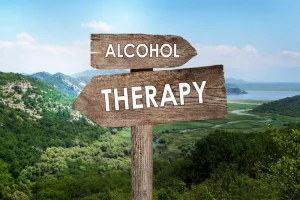
While peripheral neuropathy generally cannot be cured, there are several medical treatments that can be used to manage the pain of alcoholic neuropathy, aiding in your recovery. Nerves don’t have a resilient ability to regenerate if they are severely damaged. So, the nerve damage of alcoholic alcohol neuropathy neuropathy is generally permanent and likely to worsen if the person does not stop drinking. Alcoholic neuropathy damages the nerves due to prolonged and excessive alcohol consumption. This damage prevents the nerves from communicating information from one body area to another.
Alcoholic Neuropathy Treatment
In delirium tremens, fever and sweating may necessitate treatment of fluid loss and secondary low blood pressure. Agitation may be treated with benzodiazepines such as chlordiazepoxide, beta-adrenergic antagonists such as atenolol, or alpha 2-adrenergic agonists such as clonidine. Although alcohol is broken down by the liver, the toxic effects from a high dose of alcohol are most likely a direct result of alcohol itself rather than of its breakdown products.
What to Know About Alcoholic Myopathy
- If a person has any symptoms of Wernicke’s encephalopathy, they should seek immediate medical attention.
- Whether you’ve recently received a diagnosis of a brain aneurysm or are concerned about your personal risk, consider talking with a doctor about whether avoiding alcohol might help.
- This article will describe the symptoms of paralysis, types, possible causes, diagnosis, and treatment, and when to see a healthcare provider.
- Thiamine— A B vitamin essential for the body to process carbohydrates and fats.
- It’s more common in people who have other alcohol-related diseases like liver cirrhosis.
Dr. Moawad regularly writes and edits health and career content for medical books and publications. If a person has any symptoms of Wernicke’s encephalopathy, they should seek immediate medical attention. A person should talk with a doctor if they think they may have AUD.
The Stages of Sleep: REM and Non-REM Sleep Cycles
The more you drink, especially in a short period of time, the greater your risk of alcohol poisoning. A person can consume a fatal dose of alcohol before passing out. Even when the person is unconscious or stops drinking, the stomach and intestines continue to release alcohol into the bloodstream, and the level of alcohol in the body continues to rise.
How does alcohol cause neuropathy?
Alcoholic polyneuropathy is caused primarily by chronic alcoholism; however, vitamin deficiencies are also known to contribute to its development. This disease typically occurs in chronic alcoholics who have some sort of nutritional deficiency. Treatment may involve nutritional supplementation, pain management, and abstaining from alcohol.
What else do doctors recommend you avoid if you have a brain aneurysm?
- While this may be true for some, stopping cold turkey can not only be difficult but also ill-advised, as the acute alcohol withdrawal syndrome may be life-threatening if not managed properly.
- Avoiding alcohol is the best way to treat these conditions and relieve symptoms.
- If any of the following scenarios seem familar, it might be time to make some changes.
- Talk to your healthcare provider if you’re under stress and think you may be at risk for relapse.
If you think that someone has alcohol poisoning, seek medical care right away. Alcohol poisoning also can occur when adults or children accidentally or intentionally drink household products that contain alcohol. If liver damage is evident, appropriate consultation with a transplantation service is recommended.


The American Medical Association recommends a two-drink daily limit for people assigned male at birth (AMAB). Heavy drinking in this population is five or more drinks in one day or 15 or more drinks in a week. People assigned female at birth (AFAB) should limit drinking to one drink a day.
Not only does smoking increase your risk of developing multiple brain aneurysms, but it’s also been linked to a higher risk of rupture if you already have one. This condition is typically not life-threatening, but the nerve damage from alcoholic neuropathy is usually permanent. The first step in treating alcoholic neuropathy includes stopping alcohol use altogether. If your drinking is out of your control, know that many treatment options are available.
You Drink More Than Planned
This may improve your symptoms and help prevent further nerve damage. Chronic heavy drinkers may be at risk for several different alcohol-related neurological issues. If you’re receiving counseling, ask your provider about handling high-stress situations when you may feel like you need some additional mental health support. Your symptoms are likely to get worse if you don’t stop drinking.
